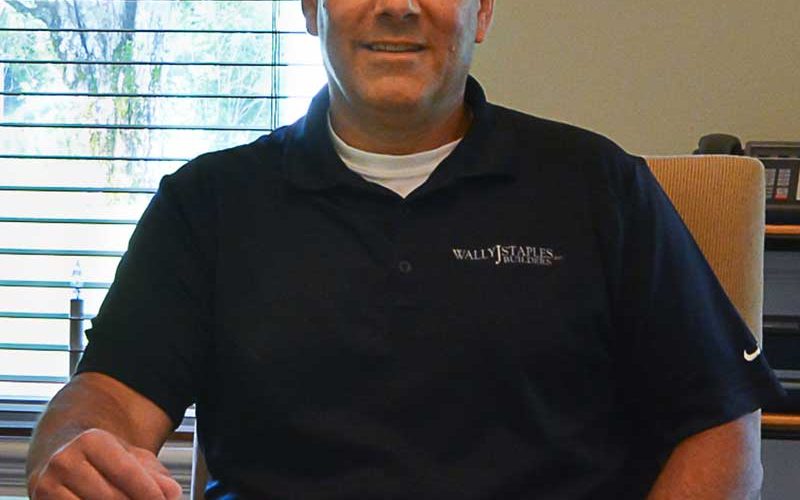We’re taking a stroll down memory lane, to pick our Top 10 moments from our first 30 episodes. These episodes discuss the big ideas that can really change your company and how you do business. Every time we talk to a guest, we come away with something new. Although we look at Production, our biggest takeaways are how important it is to involve your whole team, from Sales to Design to Production, and to make work more meaningful and fun.
If you’re new to the podcast, or may have missed a couple episodes, here’s a handy list of links to the 10 episodes Tim and Steve consider their best so far, and why. The subjects and guests cover a lot of ground, so take a look and then give them a listen!
No. 5
Steve’s Pick
Ep.04: Running Effective Production Meetings with Teri McDermott. Teri came back from our Production Conference in 2017 and completely blew up her company’s process. She realized they were doing what they’ve always done, and it was going nowhere. She got her team involved, getting feedback to make their meetings more meaningful. She paired Design and Production people to talk about the problems, how to solve them, and changed the entire dynamic of how her team worked together.
Tim’s Pick
Ep.23: Controlling Scope Creep With Sales Change Orders with Will Giesey
Will talked about something that could change the industry across the board. By introducing the idea of a core scope of work, with change orders occurring during the design process, you can cushion the blow of escalating prices on clients while maintaining margins. Will’s Production Manager Ryan Stiffney joined us, and talked about how important it is that their clients are already used to change orders and how it reduces stress for everyone.
No. 4
Steve’s Pick
Ep.12: Making the Transition from Home Building to Remodeling with Kevin Gregory
Kevin talks of his experiences and the differences in speed and quality between large-production new-home building and remodeling, and why things are the way they are. Learn about how you can successfully make the change to remodeling — where turnaround time is longer, quality has to be better, and you interact much more with clients — and how to lead workers through it.
Tim’s Pick:
Ep.01: Hiring Out of Trade Schools with David Keebler
Tim expresses some disappointed in our industry not getting new people into our business and not taking responsibility for making it happen. In this, our first episode, David talks about his company’s active involvement in their local trade school — and talks to one of its graduates, Al Chieffo, a carpenter who was hired right out of school.
No. 3
Steve’s Pick
Ep.10: Customer Satisfaction; Communication & Setting Expectations with Sal Alfano
Sal just showers you with wisdom, Steve says, and he draws on deep and wide experience in the industry. He talks about craftsmanship, communication, and running efficient projects. You can hear Sal discuss the importance of transparency in the industry, and how to protect your body when doing physical work.
Tim’s Pick
Ep.30: Building Systems in Production with Brad Hogan
If you can create only one system, it’s the process map — figuring out what happens in the entire process from the first client call to closing up the job. Once you’ve got that in place, you can go back to create systems for each step and department.
No. 2
Steve’s Pick
Ep.09: Keeping Craft Alive & Closing the Skills Gap with Rob Yagid
Rob took it upon himself to change something in the industry by leading the movement to celebrate the trades as a real career path by founding the Keep Craft Alive initiative. Created to help close the skills gap and encourage training and education, the campaign funds scholarships and publicizes the campaign in media outlets, and has popularized the hashtag #KeepCraftAlive.
Tim’s Pick
Ep.25: How to Fire a Client with Jackie Stezik
Every contractor has thought about it, and wanted to do it, but Jackie has fired clients — four times, in fact, and always for the good of her team. The first step is getting your contract language in line, and creating a process that allows you to get out of an abusive or dangerous situation.
No. 1
Steve’s Pick
Ep.03: Zero Punch List Production with Michael Barkhouse
Michael focused on solving the fatal flaw in a project — how to leave no error or step behind. He explains how to set your standards and expectations, and how to make that happen in real life. Getting to zero starts with sales, and continues through the process. If everyone expects it, the team’s behavior changes.
Tim’s Pick
Ep.05: Creative Ways to Motivate Your Production Team with Brad Yetman
For Tim, it’s not so much about the games, but about creatively motivating your people and making it fun. Using contests and games motivates people and makes work more enjoyable. You have to identify the problem you want to solve, figure out how to keep score, and let the team figure out what the reward should be.
We’d love to hear from you!
If you’ve got an idea for a topic, or have solved a nagging Production problem, let us know. Shoot Tim an email at tim@remodelersadvantage.com. And if you’re enjoying The Tim Faller Show and learning while you do it, please spread the word and leave us a review on iTunes and Stitcher.












